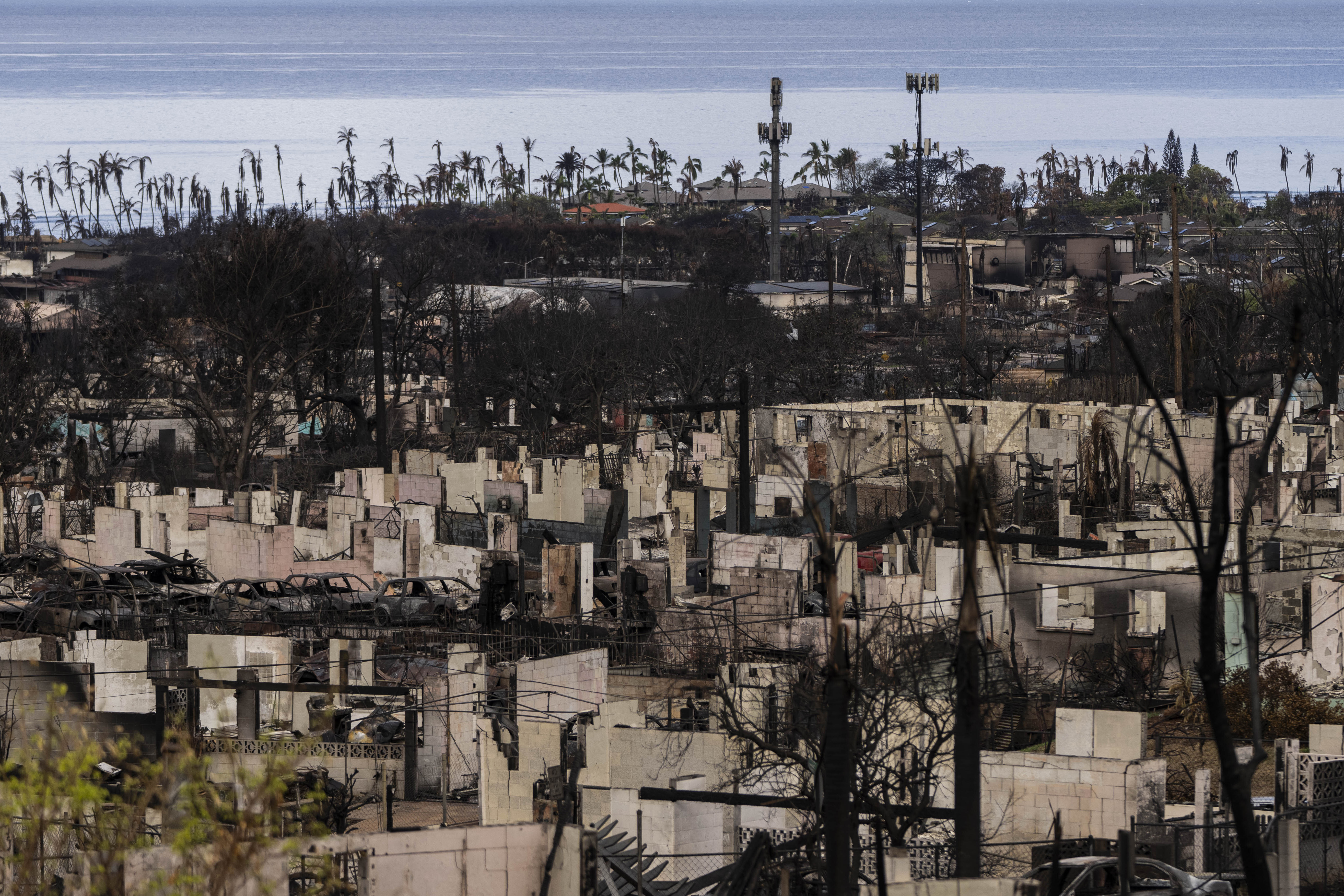Activists and politicians are marking the one-year anniversary of the U.S. Supreme Court ruling that overturned a nationwide right to abortion with a range of reactions that vary from praise and protests.
Advocates on both sides marched at rallies Saturday in Washington and across the country to call attention to the Dobbs v. Jackson Women's Health Organization ruling on June 24, 2022, which upended the 1973 Roe v. Wade decision.
“I’m absolutely livid that people think that they can interfere with medical decisions between a woman and her doctor,” said Lynn Rust, of Silver Springs, Maryland, at a Women's March rally in Washington.
Anti-abortion groups take the opposite view: “We celebrate one year of momentous progress in the fight for life,” Susan B. Anthony Pro Life America President Marjorie Dannenfelser said in a statement.
Republican National Committee Chairwoman Ronna McDaniel praised the ruling, which was made possible by former President Donald Trump's adding three conservative justices to the Supreme Court during his term in office.
“The decision has saved countless lives and set America on a positive course after decades of shameful abortion on-demand practices that put us in a category with China and North Korea,” McDaniel said in a statement.
The decision made abortion an unavoidable campaign issue and deepened policy differences between the states.
U.S. & World
Most Republican-controlled state have imposed bans , including 14 where laws in effect now block most abortions in every stage of pregnancy, with varying exceptions for the life and health of the women and for pregnancies resulting from rape or incest. Most Democrat-led states have taken steps to protect abortion access, particularly by seeking to protect doctors and others from prosecution for violating other states’ abortion bans.
On Friday, President Joe Biden released a statement criticizing what he called “extreme and dangerous abortion bans that put the health and lives of women in jeopardy.”
Feeling out of the loop? We'll catch you up on the Chicago news you need to know. Sign up for the weekly Chicago Catch-Up newsletter here.
Vice President Kamala Harris spoke about the impact of the Dobbs ruling in Charlotte, North Carolina.
“We knew this decision would create a healthcare crisis in America,” she said, pointing to women who were initially denied abortion access even during miscarriages because hospitals were concerned about legal fallout.
The laws restricting abortion “in design and effect have created chaos, confusion and fear,” Harris said.
While there's far from a universal consensus among voters, public opinion polls have consistently found that the majority oppose the most restrictive bans but also oppose unchecked abortion access at all stages of pregnancy.
Biden has pushed for a national law to reinstate abortion access. Republicans have called for a national ban. This week, former Vice President Mike Pence, who is seeking the 2024 GOP presidential nomination, is calling for his party's presidential candidates to join him in backing a ban after 15 weeks of pregnancy.
But with Democrats controlling the presidency and U.S. Senate and Republicans holding the House, no federal change is imminent.
Nikki Haley, another GOP presidential candidate and former ambassador to the United Nations, said she backs a federal ban but it doesn't have enough support to advance. Speaking at the Faith and Freedom Conference in Washington, Haley said both parities should instead look to goals such as limiting abortion later in pregnancy. Only a half-dozen states allow abortion at any point in pregnancy, and abortions after 21 weeks or so are very rare.
“We need to make sure that our country stops demonizing this issue and we humanize this issue,” Haley said. “This is personal for everyone.”
These policies have vast practical implications.
In states with the deepest bans, the number of abortions has plummeted to nearly zero. There have been more abortions in states where access has been maintained — especially those closest to those with bans, as women travel for care they used to be able to get closer to home.
There's also been a rise in use of networks that distribute abortion pills.
But because of lags and gaps in official reporting — and because some of the pill use goes unreported, the impact on the total number of abortions in the U.S. is not clear.
And while abortions have continued, advocates say there's an equity problem: Black women and lower-income women especially, they say, are those who were expected to lose access.
“Seeing how it impacts every one in the country, but especially the people who are already at a disadvantage and don’t have that access is really scary,” Larkin O'Gorman, a Washington resident, said at the Women's March event.
___
Mulvihill reported from Cherry Hill, North Carolina. Associated Press journalists Stephanie Scarbrough and Will Weissert in Washington contributed to this article.



